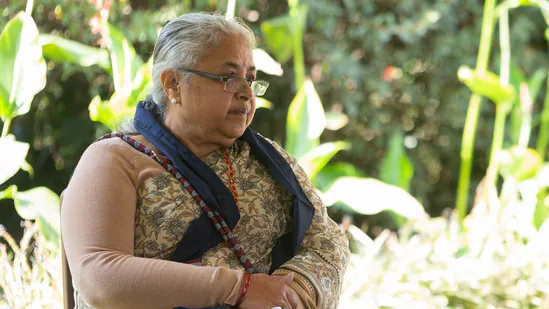What Led to the Interim Government
Nepal has been gripped by mass protests led principally by young people, dubbed the “Gen Z protests,” sparked by a government decision to ban social media platforms. The ban was lifted, but public anger over corruption, political stagnation, and restrictions on freedom continued to swell.
On September 9, 2025, Prime Minister K.P. Sharma Oli resigned in the face of the unrest, which saw buildings set on fire, widespread arrests, and escalating violence. Parliament was dissolved, and power vacuums emerged as protestors demanded change.
New Leadership and the Pledge of Transition
On September 12, former Chief Justice Sushila Karki was sworn in as interim Prime Minister, becoming Nepal’s first woman in that role. She is widely seen as a consensus figure—respected for her judicial career and reputation for anti-corruption, and acceptable to protest groups.
In her first address as interim leader, Karki made a clear commitment: this government is temporary, with a six-month time limit on its mandate. She said her administration would not “taste power,” but rather oversee a transition toward fresh elections and a new parliament.
Scheduled Elections and Political Timeline
The plan is for general elections to be held on 5 March 2026, as part of restoring democratic governance. That date reflects the roughly six-month period the interim government has allotted for its stewardship.
The dissolution of parliament, the appointment of the interim PM, the lifting of the social media ban, and other steps are all part of a package aimed at calming tensions and satisfying protester demands for accountability and political renewal.
Challenges Ahead & Public Expectations
Karki’s government faces substantial tasks in its short mandate:
- Restoring Order: After days of violent unrest in which dozens died, protestors are demanding recognition, justice, and compensation. The new PM has already declared those killed “martyrs” and offered reparations.
- Promising Reform: The administration is expected to begin measures to address corruption, political accountability, and transparency—core concerns of the protests.
- Ensuring Free Elections: Conducting clean, credible elections in March will be essential to legitimising the handover of power.
Significance & What This Means
The commitment to a six-month transitional government is rare in Nepal’s recent history, where political instability and shifting allegiances have often delayed reforms. The public, especially young people, view Karki’s tenure as a litmus test for how seriously the old elites are willing to change.
By naming a former chief justice with a reputation for impartiality and anti-corruption, the hope is that this interim government can bridge divides and rebuild trust. But there are warnings too: legal and constitutional questions have been raised about whether her appointment fully aligns with existing laws, and whether an interim regime can make deep systemic changes in just six months.











